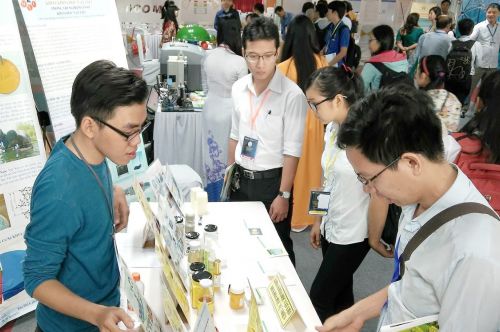Better incentives for sci-tech firms
Speaking at a seminar in Binh Duong Province on Saturday, Quan said the nation expects to see 3,000 science and technology enterprises by 2015.
The ministry will encourage institutes and universities to establish applied science research centers to bring scientific works to reality.
Nguyen Huu Duc, deputy director of Hanoi National University, said that it is difficult to produce scientific and technological products which become commercial products.
It is also hard to commercialize research work as scientists are not businessmen and don’t know how to capitalize, Duc said.
Nguyen Thanh My, chairman of My Lan Group, said science and technology companies have yet to access capital and tax incentives. The enterprise, which specializes in energy saving products, has yet to receive any feedback after sending a tax reduction application to related agencies two years ago.
Hoang Duc Thao, chairman of Ba Ria Vung Tau Drainage and Urban Development Company, said that his company could not benefit from these incentives as most of its scientific products aimed to serve social welfare.
Economic expert Le Dang Doanh said that there will be no scientific revolution if the Government fails to apply a suitable mechanism. The current framework doesn’t encourage enterprises to renovate their technologies.
Between 2000 and 2010, real estate prices surged 10-fold, prompting many investors to pour capital into this sector instead of investing in science and technology, Doanh said.
However, economist Pham Chi Lan from a macro viewpoint said that the modest number of enterprises applying advanced technologies is not a new issue. This was a problem of the 90s and the problem has worsened now given widespread corruption.


